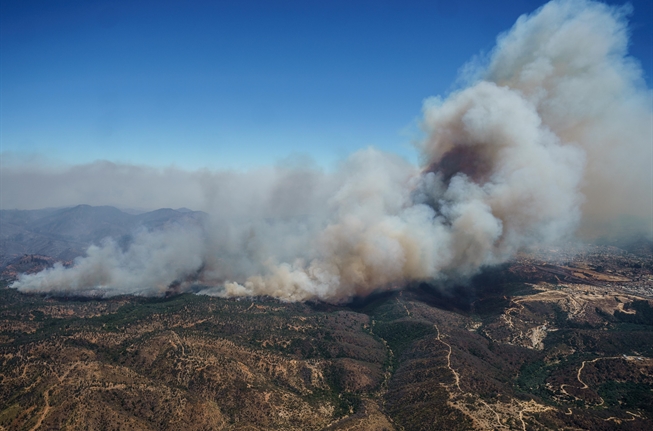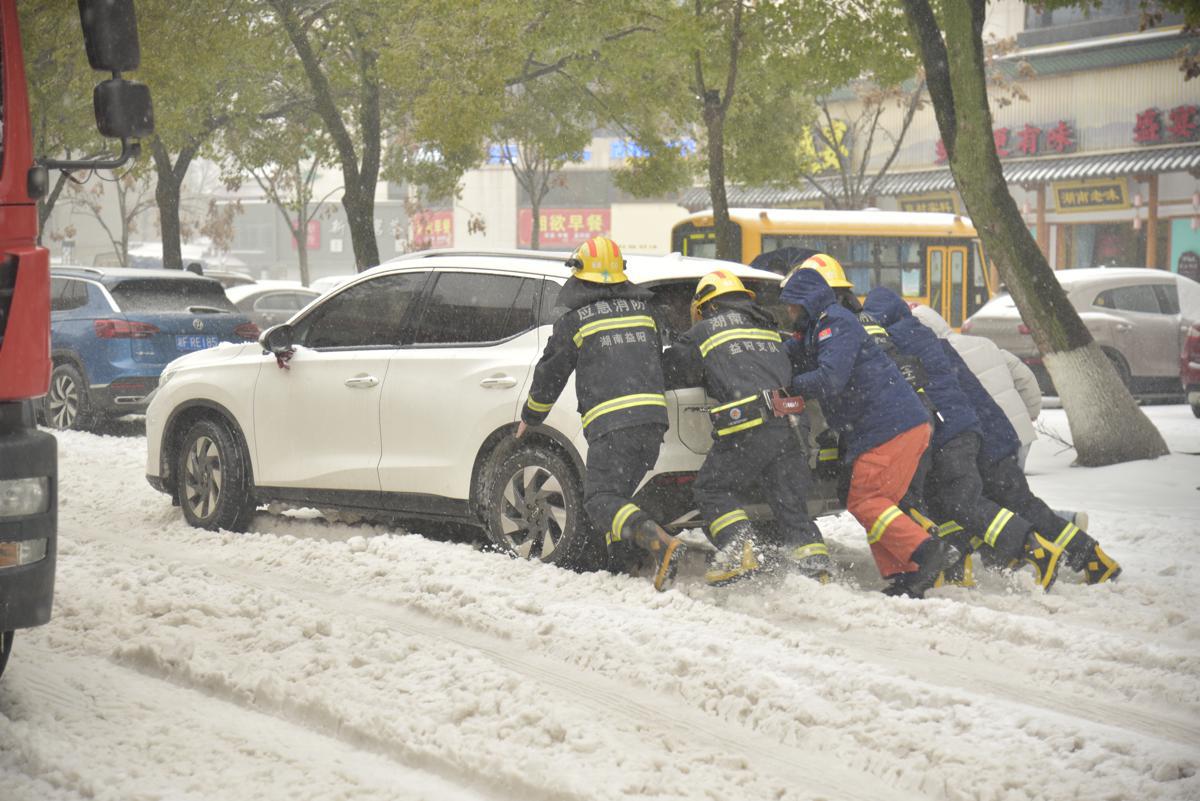Welcome to Factal Forecast, a look at the week’s biggest stories from the editors at Factal.
We publish our forward-looking note each Thursday to help you get a jump-start on the week ahead.
More than 130 people are dead and hundreds more missing due to wildfires burning in Chile’s Valparaiso region. In this week’s Factal Forecast podcast, Senior Editor Jimmy Lovaas and Editor Jaime Calle Moreno discuss the ongoing response to the fires and what other regions officials are watching closely.
Listen now or download on your favorite platform.
Week of Feb. 9-16
A Look Ahead
Feb. 10 – Lunar New Year
Officials say travel in and out of mainland China is projected to surpass pre-pandemic levels the number of trips expected to triple from last year in the lead-up to the Chinese New Year on Saturday.
What’s happened so far
While 2023 marked the first “chunyun” period — the 40-day travel rush when millions return to their hometowns to celebrate the new year with family — since coronavirus restrictions were eased, a new wave of infections complicated travel plans. This year is expected to be far closer to normal, with 1.8 million inbound and outbound trips expected per day over the eight-day holiday stretch starting Saturday.
The impact
The Chinese Ministry of Transport estimated a total of 9 billion trips would be made over “chunyun,” with self-driving road trips accounting for 80 percent of the total. Ice and snow, however, marred travel across central and eastern China in recent days, leaving thousands of travelers stranded on highways and others impacted by canceled flights and train service.
Feb. 11 – Super Bowl LVIII in Las Vegas
The Kansas City Chiefs and San Francisco 49ers will face off in the Super Bowl on Sunday, culminating the NFL season.
What’s happened so far
The Super Bowl will take place in Las Vegas this year, marking the first Super Bowl the city has hosted. The matchup is a rematch of Super Bowl LIV, won by the Chiefs, which precipitated the beginning of the Chiefs’ ongoing dynasty. The halftime show will be headlined by Usher.
The impact
Las Vegas serving as the host venue is indicative of the stark turn taken over the past decade in American sports betting, as the practice has evolved from pariah activity done largely underground to a massive multi-billion dollar industry partnering with the NFL. While just two decades ago the NFL was ordering Las Vegas casinos to cease broadcasting of the Super Bowl, the city now will host the game, and citizens across the majority of the United States are able to legally bet on everything ranging from the outcome of the coin toss to the color of lipstick worn by Taylor Swift at the game.
Feb. 11 – Finland presidential election second round
Voters will go to the polls Sunday for the second round of Finland’s presidential election after the first round failed to present a decisive result.
What’s happened so far
The first round of the election saw former Prime Minister Alexander Stubb win 28 percent of the votes, narrowly beating former Foreign Minister Pekka Haavisto, who had 25.8 percent. Right wing candidate Jussi Halla-aho took third place with 19 percent of the vote. The top two of the field of nine candidates advanced to the second round. Opinion polling has shown the center-right Stubb with a lead over his liberal challenger but given the narrow difference between them and the votes from the seven other candidates, the race is considered open.
The impact
Finland’s president leads foreign policy in collaboration with the government and also serves as commander-in-chief of the country’s armed forces. Both Stubb and Haavisto are outspoken on the topic of Russia and its invasion of Ukraine, and advocate for a strong stance against their eastern neighbor, which is likely to carry a heavy weight in NATO discussions, now that Finland is the newest member of the alliance. The next president will begin their six-year term March 1.
Feb. 14 – Turkish and Egyptian presidents to meet in Cairo
Turkey’s President Recep Tayyip Erdogan and his Egyptian counterpart Abdel-Fattah el-Sissi will meet in Cairo on Wednesday.
What’s happened so far
Relations between the two countries became tense when the Egyptian military, led by el-Sissi, removed President Mohamed Morsi, backed by Turkey, from office in 2013. The two countries recalled their respective ambassadors shortly thereafter, with Cairo claiming Ankara was endorsing “Islamist extremism” for their alleged support of the Muslim Brotherhood. Despite the political tensions, the two countries enjoyed extensive trading activities estimated at nearly $10 billion in 2022.
The impact
The official visit will mark the first time Erdogan has visited Egypt since the coup more than a decade ago and since the two reappointed their ambassadors in 2021. Turkey’s foreign minister said Ankara agreed to supply Egypt with drones, which are already being shipped to support the conflicts in Syria, Libya, Azerbaijan and Ukraine.
Feb. 14 – Indonesia presidential election
Indonesians will go to polls on Wednesday to elect a new president. Some 204 million people, mostly between 17 and 40 years of age, are eligible to vote in this election.
What’s happened so far
Three main candidates are contesting the race. Defense Minister Parabowo Subianto, the current favorite, is angling to continue outgoing President Joko Widodo’s infrastructure and economic development policies, with Joko’s son as his running mate. Anies Baswedan, who implemented social welfare policies during his time as Jakarta governor, is running along alongside the leader of the country’s largest Islamic party and has been accused of promoting identity politics against non-Islamic representatives. Former Central Java Governor Ganjar Paranowo has centered his campaign around security and foreign relations.
The impact
The main concerns among voters in this election are employment, general welfare and the resilience of the country’s democratic system. Prabowo’s joint candidacy with Joko’s eldest son fueled the latter, after it was made possible by a ruling by the Constitutional Court that made an exception allowing a candidate under 40 to join a presidential ticket. The successful candidate will need to secure more than 50 percent of the votes in order to avoid a runoff in June.
Feb. 16 – Munich Security Conference
World leaders will meet in the German city of Munich starting Friday for the annual conference on international security policy.
What’s happened so far
The three-day event, one of the most influential summits for global diplomacy, is expected to attract more than 100 ministers and 50 world leaders. This year, Russian and Iranian government officials have not been invited to participate in the conference, with organizers citing no interest in talking with the countries’ representatives. Meanwhile, some German political parties, including the far-right Alternative for Germany party, were also excluded.
The impact
The exclusion of Russia in the forum follows last year’s approach to the war in Ukraine. Officials said that Russian President Vladimir Putin would be “happy to negotiate but not with this Ukrainian government,” which for organizers showed there was “no serious willingness to talk.” The conference’s head also urged Germany to take a tough stance on Israel, arguing Berlin should call on the Israeli government to respect international law amid the war in Gaza.
What Else Matters

Chile wildfires
After a relatively calm start to Chile’s wildfire season, the region of Valparaíso was hit by several quickly advancing wildfires last weekend fueled by strong winds and high temperatures in Quilpué and Viña del Mar. So far, at least 130 people have been killed, with death tolls expected to rise, and at least 3,000 homes entirely destroyed . Figures, however, are still under evaluation. President Gabriel Boric issued a state of emergency and a nighttime curfew for the areas affected, with the military also deployed as the wildfires continue to burn in areas around Valparaíso, reaching around 40,000 acres total. Investigations are ongoing into the cause of the fires.
Watch for: The devastation caused is evident, with officials touting it as one of the worst tragedies since the effects of the central Chilean earthquake and tsunami in 2010. Wildfires remain active in several regions, including Maule, Araucanía, and Los Lagos, which could spread emergency resources thin if the fires spread across other regions. Death tolls are expected to rise as search and rescue operations continue.
Protests erupt after Senegal election postponement
Senegal’s parliament has approved legislation to delay the country’s presidential election to Dec. 15 following a tense vote that saw opposition lawmakers ejected from the chamber and tear gas fired toward protesters outside the government building in Dakar. President Macky Sall had announced an indefinite postponement to the vote on Saturday, citing a constitutional dispute over eligibility requirements. Numerous opposition candidates were left off the ballot for the upcoming vote, including the opposition leader Ousmane Sonko, due to incarceration and other factors. In an effort to crack down on public dissent against the delay, Senegal’s government on Monday suspended mobile internet access and banned a private broadcaster for its coverage of anti-government protests.
Watch for: The unprecedented electoral delay is the latest indication Senegal is becoming untethered from its reputation as a bastion of democracy in an otherwise volatile region. Several opposition figures have described the delay as a “constitutional coup” and have vowed to challenge the decision, either in court or via the electoral observer. Sall’s term expires on April 2 and there’s no constitutional provision for him to remain in his post, making it unclear who will rule the country until the election on Dec. 15.
Extended Outlook
What’s on our radar in the coming weeks…
Feb. 9-16
Feb. 10
- Lunar New Year
Feb. 11
- Super Bowl LVIII in Las Vegas
- Finland presidential runoff
Feb. 13
- Special election to fill seat of ousted New York Rep. George Santos
- Mardi Gras
Feb. 14
- Indonesia election
- Turkish President Erdogan meets Egyptian counterpart Sisi in Egypt
Feb. 15
- Berlin Film Festival begins
Feb. 16
- Munich Security Conference
Feb. 17-23
Feb. 17
- EU aims to launch Red Sea naval mission
Feb. 18
- Kurdistan parliamentary election
Feb. 19
- Qatar Open begins
Feb. 20
- Julian Assange final appeal against U.S. extradition
Feb. 21
- MLS season scheduled to begin amid referee union negotiations
- Biden’s brother to testify in impeachment inquiry
Feb. 24-March 1
Feb. 24
- Republican primary in South Carolina
Feb. 25
- Cambodia Senate election
- Senegal presidential elections
Feb. 26
- Nigeria central bank policy meeting
Feb. 27
- Israel municipal elections
March 1
- Iran parliamentary elections
- Thailand and China waive visa requirements for travelers
March 2-8
March 4
- Donald Trump 2020 election results trial in Washington
March 5
- Super Tuesday primaries
March 6
- UK spring budget
March 7
- Biden delivers State of the Union address
Thanks for reading! If you want the Factal Forecast in your inbox, you can sign up for free.
Factal gives companies the facts they need in real time to protect people, avoid disruptions and drive automation when the unexpected happens.
Try Factal for free or talk with our sales team (sales@factal.com) for a demo.

